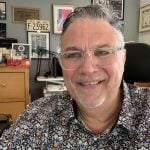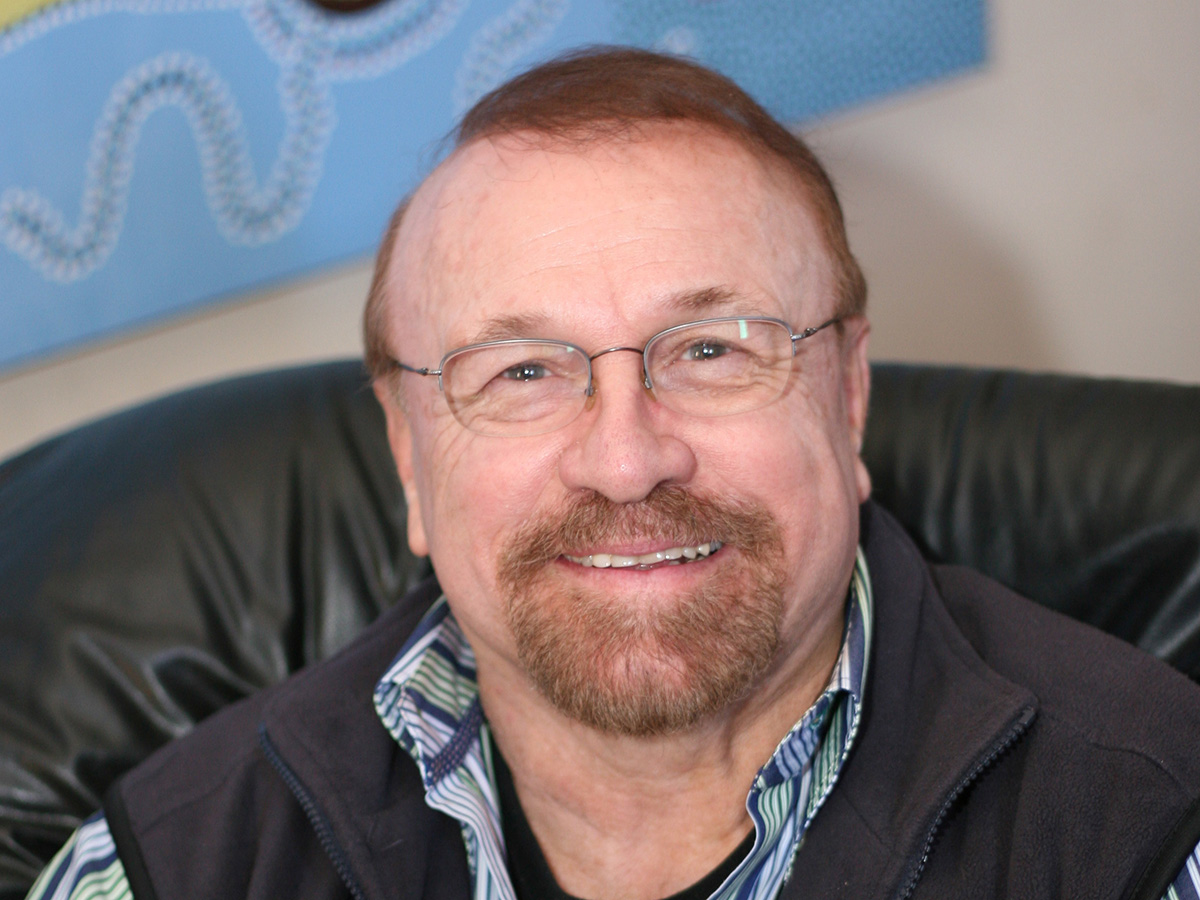Dave Charles will be inducted into the Canadian Broadcasters Hall of Fame on June 4, 2024.
In what Charles has described as one of the “proudest milestones” of his 62 year history in radio, the ceremony will take place as part of the Radio Days North America conference in Toronto, Canada and combines celebrations for Canadian Music Week.
With an association that goes back more than 35 years, Charles has granted an exclusive interview to David Rogerson. Dave shares the passion from his early youth to get into radio; reveals the first artist he ever played on air and discloses the radio industry’s most creative people enjoyed working with during his mentoring and consulting career.
Dave Charles – the formative years.
When a young Dave Charles first had the idea of getting into the Canadian radio industry I doubt he had any concept that 23 of his 62 years in radio would be spent working in Australia and Australasia. When I suggested to Dave that receiving the Canadian Hall of Fame award would have to be the pinnacle of his success , he smiled back at me and in his own charming style remarked “well David, now I know what the word chuffed means!”
Was radio a walk up natural for the young Dave Charles? Had it always been on your career path mind?
“It was David. Growing up in the Steel making town of Hamilton Ontario, career choices were very limited. My love of sports and music helped me make the right career choice at age 16. First time on radio was doing a segment on a high school sports show in 1961 at CHML in Hamilton, Ontario. Bill Sterrup the Sportscaster offered me a chance to cover High School sports which I gladly did for $15 a season. Hockey, Football and Basketball were the sports I covered.”
Where was your first true paid radio job?
“It was 1963 at CJBQ in Belleville Ontario a tiny town between Toronto and Montreal on beautiful Lake Ontario where my first real pay check came in. I did the news at first, then was offered the Top 40 ‘At The Top’ show from 4 pm to 8 pm.”
That’s a time when radio and listeners were really getting into The Beatles, Rolling Stones and other huge 60’s artists. Where and where did you get your first locked in full time on air show?
“That was CJBQ Belleville, Ontario. I read the 3pm news and weather and yes, 1964 for me – what an amazing time for radio and music. I stayed at CJBQ for 3 years to develop my on air chops. That was exciting because I was on air in my hometown. First song I played was by the Beach Boys. In the Summer of 1967 I got a phone call from CKOC in Hamilton. The call was about me doing the afternoon drive show and be assistant music director and commercial producer. Nevin Grant was my mentor for music and Gary Summers was the PD at CKOC and Sports Director.”
Looking back on your career, what comes to mind as the most memorable moment in your 60 years in the industry?
“That’s pretty easy. I was the first Canadian DJ to play the Beatles Sgt Pepper album in its entirety on air. The studio phone blew up with listeners requesting me to play the album again and again. I purchased Sgt Peppers on my first trip to London, U.K. along with Procol Harum’s -Whiter Shade of Pale and Jimi Hendrix doing Foxy Lady. What a great Summer that was…the Summer of 1967. It was receiving so much heightened listener attention that Capital EMI called my Station Manager Frank Murray and told him to ask me not to play Sgt. Pepper because it was yet to be released in Canada. Then the Canadian Broadcasting Corporation with ‘The Action Set’ show called the next week and offered me a guest weekly DJ spot. CBC was national. Something I will never forget.”
And your most challenging time in radio?
“In 1971 Canadian stations were asked to play 30 % Cancon music in all music shows. Cancon being short for Canadian Content similar to Australia’s APRA percentage of Australian content requirements. Nevin Grant who I mentioned early, and I quickly put a format together to comply with the Cancon as it was the law of the land. We decided right then and there that we would champion Canadian artists and their music. It was there in that moment of time that I let people I was going to be a raving fan and huge supporter of Canadian music artists.”
And that of course is apparent in your strong association with the upcoming Canada Music Week. Your contribution to radio in Australia, particularly with Austereo is that also up there with your most memorable radio moments. How did this start?
“After the successful launch of Album Rock Q107 FM in Toronto I’d get calls from other radio companies in the U.K. and Australia asking me to come and speak to them about the Q107 Album Rock format’s secret sauce. Austereo’s Paul Thompson and Greg Smith met with me at an NAB conference in Dallas Texas in 1987. They invited us to speak to their radio team in Adelaide at SAFM. That was the very first Austereo Radio station I believe. They bought FOX FM in Melbourne shortly after that. SA FM in Adelaide had a 31% share at the time. I loved their spirit, the Aussie music was fantastic and their promotions were incredible. The Black Thunders doing instant street promotions and product sampling just added excitement to the station and of course engaged their Melbourne listeners in so many innovative ways.”
Dave Charles has been a strong contributor to the growth and success of stations in Australia. I’m humbled to have consulted along side both Dave and Greg Smith to assist in what has been a very rewarding time in each of our collective radio careers. Who does Dave consider were some of the great Australian radio talents he’s worked ? Find out more in Part 2 when we talk further with Dave Charles on the eve of his induction into the Canadian Broadcasting Hall of Fame.

With a background covering over 40 years in Media and Communications, David Rogerson is experienced in nearly every facet of the radio and media communications industries from Group Content Director, to National Marketing Manager and Company Director. He is currently a lecturer and mentor at the Australian Institute of Music in the Masters and Bachelor degrees.
In 1997 he founded media and communications consulting company “Strategic Media Solutions”. David’s professional consulting career has seen him sought-after for his insights and client solutions in more than 15 countries around the world.
As a published author of media related books and entertainment journal articles David has personally mentored a wide range of media company directors, industry managers and entertainment executives. In the music field David’s experience covers marketing and digital content development for a range of artists including INXS and is part of the judging panel for the Australian Songwriters Association and the Songwriters Hall of Fame.

